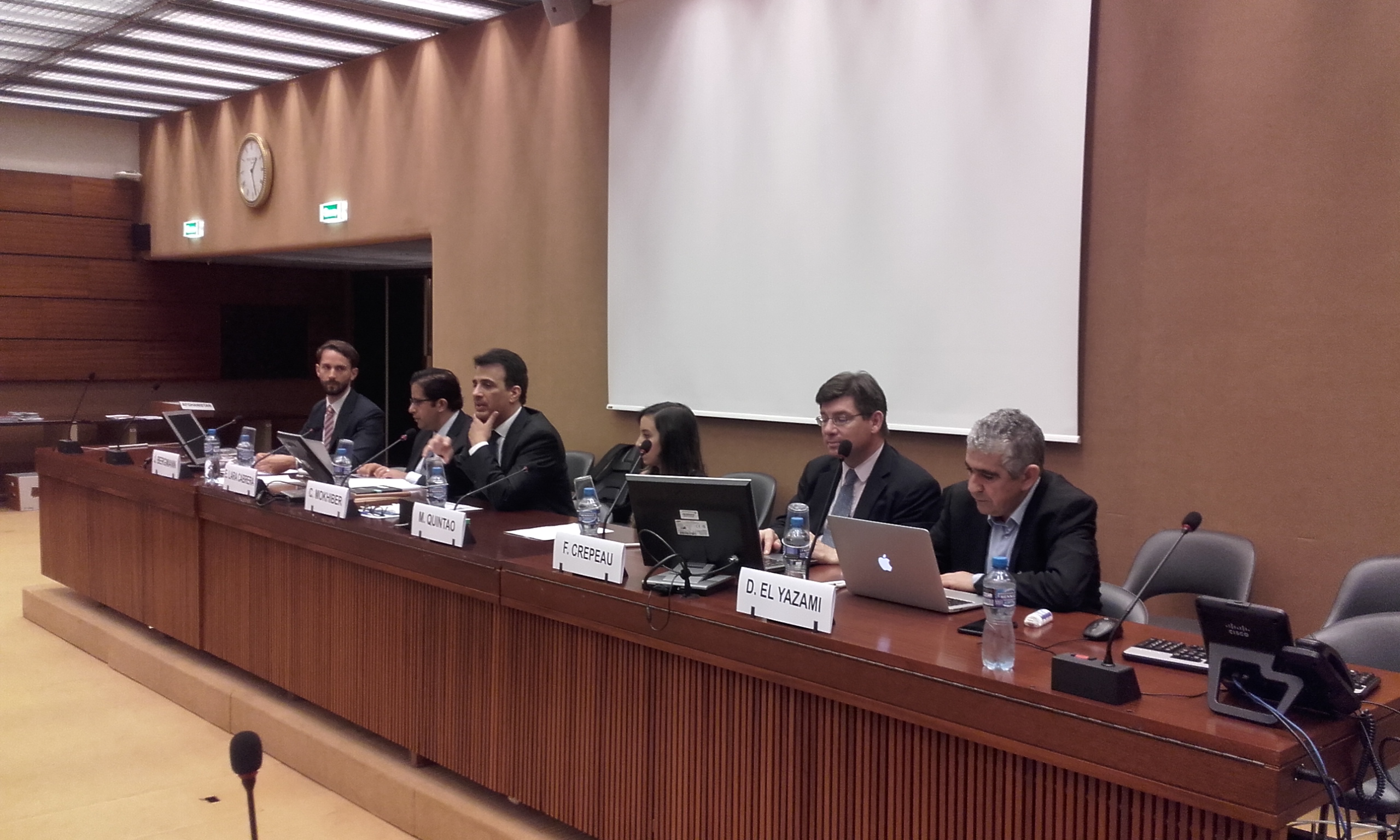June saw several activities around the UN on the topic of international migration, including at the Human Rights Council’s 35th session and during the consultation phase for the ‘global compact on safe, orderly and regular migration.’
Human Rights Council
At the 35th session of the Human Rights Council, two resolutions were passed related to migration. Firstly, we welcome the Mexican-led resolution, ‘Protection of the human rights of migrants: the global compact for safe, orderly and regular migration’. Whilst we were hoping for stronger language in certain areas, the resolution provides a helpful contribution to the process towards developing a global compact, particularly mandating a report from the Office of the High Commissioner for Human Rights with a global compact focus. The resolution also contains important references to the criminalization of irregular migrants and to the protection of migrants in vulnerable situations.
We also welcome the resolution on climate change and migration passed at this session, again focused on how the Council can contribute towards the global compact on migration, as well as work underway on these issues under the UN Framework Convention on Climate Change. We look forward to the intersessional panel mandated by the resolution, along with reports to future sessions of the Council.
This session was the last for current Special Rapporteur on the human rights of migrants, François Crépeau as he reached the end of his mandate. During the session, an interactive dialogue was held where he discussed final report with States, on a 2035 agenda for facilitating human mobility. QUNO extends its thanks to François Crépeau for his significant contribution towards migrants rights over the past 6 years and looks forward to working with his newly appointed successor, Felipe Gonzales Morales.
Global Compact Consultations
The third thematic session of the consultations for the Global Compact for safe, orderly and regular migration was held on the 19th and 20th June in Geneva. This session focussed on ‘international cooperation and governance of migration in all its dimensions, including at borders, on transit, entry return, readmission, integration and reintegration.’
The topics covered in this session are some of the most problematic for the current protection of migrants’ human rights. We were concerned during the session about a lack of human rights and people-centred approach in the statements from many States, particularly around their policies on return and readmission of migrants and towards irregular migrants.
QUNO co-hosted a side event, together with the Office of the High Commissioner for Human Rights and the Mexican, Swiss, Portuguese and Philippine Missions on ‘Human rights perspectives on the governance of migration at borders and in the context of returns.’ The discussion was wide ranging, and in particular sought to highlight that the global compact’s content on borders and returns should be human rights based and compliant with existing international legal standards. The event featured the following speakers:
- Craig Mokhiber, Office of the High Commissioner for Human Rights (Moderator)
- Erasmo Lara Cabrera, Ministry of Foreign Affairs, Mexico
- Francois Crepeau, Special Rapporteur on the Human Rights of Migrants
- Mariane Quintao, International Detention Coalition Youth Ambassador
- Jonas Bergmann, Global Public Policy Institute
- Driss El Yazami, Chair of the National Human Rights Council, Morocco
The discussion was wide ranging, and in particular sought to highlight that the global compact’s content on borders and returns should be human rights based and compliant with existing international legal standards.
For more information about our work on migration issues, see the relevant section of our website.







